How Australia’s religious leaders feel about the Voice
As the Voice to Parliament’s D-Day draws near, here’s what leading religious leaders have to say about the referendum.
National
Don't miss out on the headlines from National. Followed categories will be added to My News.
The majority of faith leaders are backing the Voice, although polls suggest they may be out of touch with their followers.
Some have signed open letters, released essays, or spoken from the pulpit on the issue.
Others are sitting on the fence or don’t believe they should tell people which way to vote.
Amar Singh said as a Sikh and a migrant he felt compelled to promote the Yes vote, so he took to the road, speaking to people about the issue in remote Australian towns and cities.
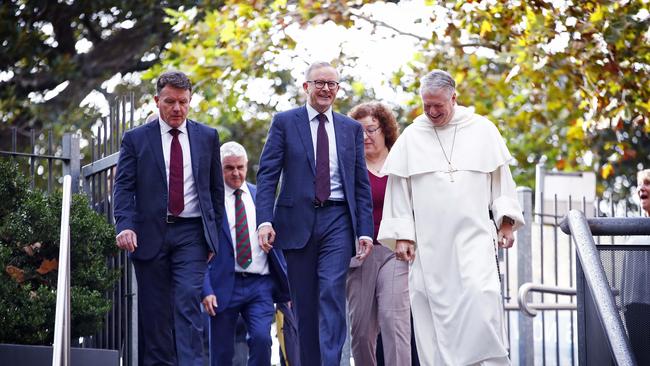
Australian National University senior lecturer in politics Dr Jill Sheppard said if faith leaders do speak up, what they say could have a big influence on whether worshippers write Yes or No on their voting slip on October 14.
“Congregational identity is a huge part in how people vote,” Dr Sheppard said.
“So religious leaders are tremendously important.”
Here’s where the main faiths stand on an Indigenous Voice to Parliament.
AUSTRALIA’S MAJOR RELIGIOUS ORGANISATIONS
In February, a number of faith leaders released an open letter to federal parliamentarians, saying they were in support of the Voice to “make life better for Aboriginal and Torres Strait Islander people”.
The open letter was signed by representatives from the Anglican Church of Australia, Australian Catholic Bishops Conference, Australian National Imams Council, Australian Sangha Association, Executive Council of Australian Jewry, Hindu Council of Australia, National Sikh Council of Australia and The Uniting Church in Australia Assembly
President of the National Council of Churches.
One of the signatories Reverend John Gilmore said the representatives had not wavered in their commitment to the Yes vote.
But he said while some at the head of those religious bodies had signalled their support, it was ultimately up to people to form their own views.
“Churches will not be dictating to people,” he said.
Christians
While Primate of the Anglican Church of Australia, Geoffrey Smith had enthusiastically backed the Voice — “Let’s go!” he wrote — fellow Anglican rector Father Peter Macleod-Miller from Albury, NSW, said he was heading towards a No vote.
He said there was a “widening gulf between the pulpit and the pew” on the Voice.
He said the credibility of religious institutions was at risk if the leaders were “singing from such a different hymn sheet from the congregation”.
Catholic Archbishop of Brisbane Mark Coleridge said the Voice was “a conscience vote”, while Sydney’s Catholic Archbishop Anthony Fisher would not say which way he was voting. In a homily he highlighted the division.
He said “some think the measure will contribute to reconciliation and a better democracy; others that it is feeding racial division and undemocratic”.
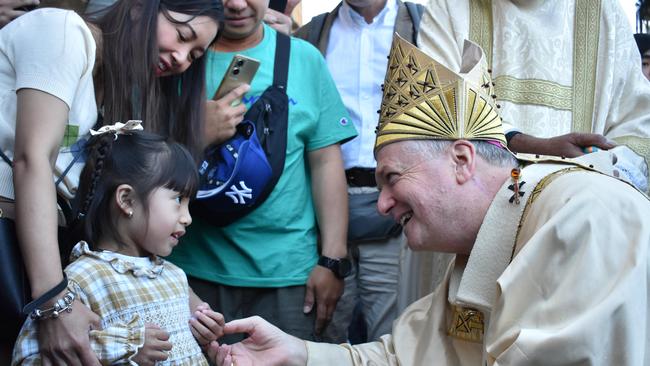
The Archbishop acknowledged that “there are strong feelings and divergent views among Aboriginal Australians, and among Catholics, like everyone else.
“Many people do not take kindly to being told how to vote by prelates and we bishops have no special magisterium on how best to secure the good of First Nations peoples in such complex areas.”
President of the Uniting Church in Australia, Reverend Sharon Hollis, signed the open letter.
Meanwhile, the Australian Christian Lobby, which promotes a Christian perspective on social and political issues, did not have a stance.
Islamic community
The influential Australian National Imams Council (ANIC) strongly urged Australian Muslims – which make up 3.2 per cent of the population – to vote Yes in the upcoming referendum.
The Grand Mufti of Australia, Ibrahim Abu Mohamad, signed the open letter in support of the Voice.
However, not all Muslims were convinced.
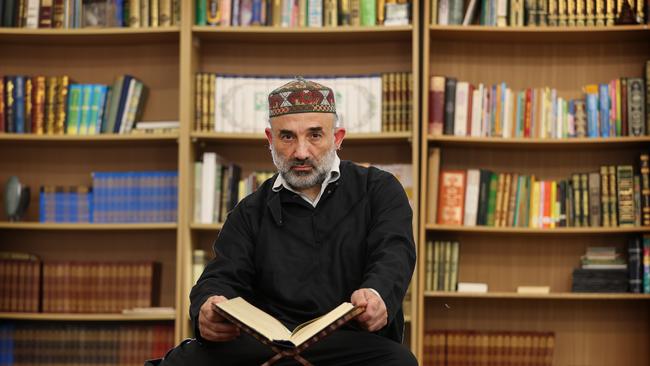
Islamic Friendship Association of Australia founder Keysar Trad said while many Australian Muslims know what it was like to be “marginalised” and so were in support of the Voice, his
“mind was still open”. He said at this stage he was not convinced by the Government’s argument.
“In my case I call on the community to consider their vote, because they are responsible for their own vote and not just blindly follow what someone else tells you,” Mr Trad said.
“Think about what is best for the country and vote on that basis.”
He said faith leaders had a tremendous influence on voters because a lot of people don’t want to go through all the arguments themselves, they want someone they trust to look at it carefully and tell them what to do.”
Sikh community
Co-founder of a Sikh-led charity, Amar Singh recently finished a road trip of Australia to promote a Yes vote.
While he was not a Sikh leader, the Australian of the Year Local Hero award winner, said he represented both his religion and the migrant community.
“The religious community has a big role to play in the referendum,” Mr Singh said.
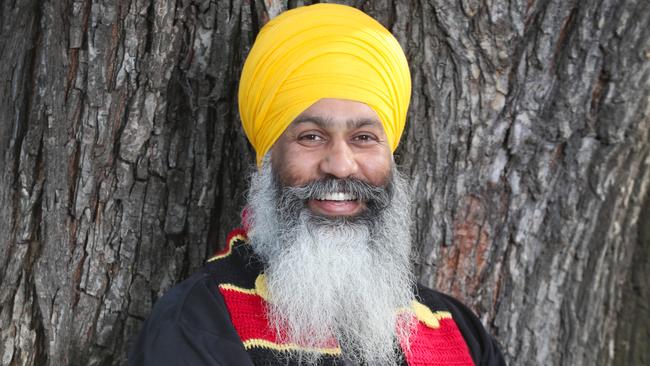
“I’m doing this for the greater good because I think the Voice will make Australia a fairer and better place.
“We need to make the wrongs of the past right.
“I think migrants need to step up on this issue.”
President of the National Sikh Council of Australia Ajmer Singh Gill said he backed “the moral stance in support of Indigenous constitutional recognition”.
Jewish community
While many Jewish organisations had backed the Voice, the community was split.
Social justice group Stand Up was co-ordinating the Australian Jewish Yes campaign with the launch of Kol Halev, which means ‘call of the heart’. It had the support of the Jewish Community Council of Victoria and National Council of Jewish Women Australia.
Volunteers from the Jewish community were being recruited to campaign for Yes.
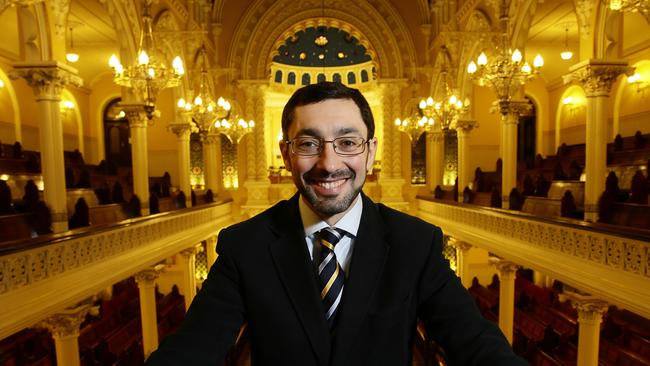
Rabbis supporting the Yes vote included Rabbi Ben Elton and Rabbi Alon Meltzer.
Meanwhile, the conservative community organisation The Australian Jewish Association favoured the No campaign, with President David Adler quoted as saying “the Voice as proposed is contrary to Jewish values and community interests”. He said it created “race-based divisions”, something that would cause “friction and resentment” in society.
Some members of the No campaign including Nyunggai Warren Mundine had distanced themselves from Mr Adler due to some of his questioning around the Indigenous heritage of some individuals.





